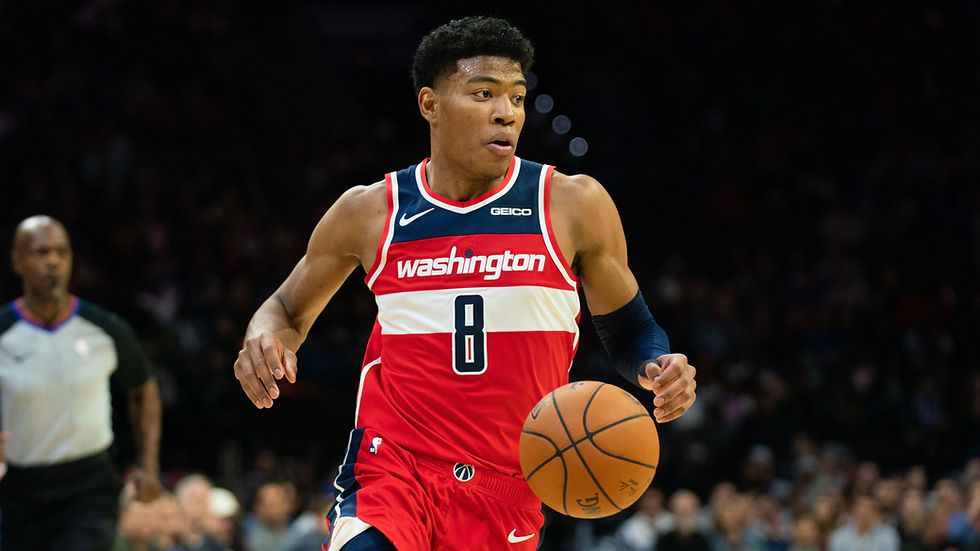Rui Hachimura in profile
- Darcy Miller
- Dec 31, 2019
- 2 min read
Updated: Apr 1, 2020

Note: this article was originally published as part of our "Youths of the Year" roundup. Click here to read the article in full.
Rui Hachimura, the 21-year-old Japanese basketball player with parents heralding from Japan and Benin, has been a promising prospect for a while now. After impressing for Meisei High School in Japan, the small forward joined the D1 US college Gonzaga, where he was the first Japanese player to play D1 college basketball. He notched up 19.7 points per game in his junior season, being named the top player in his conference this year.
However, he really made headlines when he was selected 9th overall in the NBA draft by the Washington Wizards after declaring for the draft a year early; Hachimura was the first Japanese first-round pick ever. The announcement caused a lot of hype to build up around Hachimura - being the only representation in NBA basketball for a country of 127m people is a big deal - and he was picked to be a Jordan Brand athlete. So far in the season, it is clear that he is still adapting to the NBA but he has been relatively successful, achieving a double-double in his NBA debut and scoring 30 points against the Clippers earlier in the month.
One must not only herald his basketball talent, but also recognise his potential to dismantle the racism that still afflicts biracial people like Rui in Japan. His parents recounted that while growing up in Sendai, children told him, “you’re black, go away”, while Hachimura himself remembered that “they looked at me like I was different”, telling media that "they looked at me like a fucking animal”.
Hachimura himself remembered that [during his childhood in Japan] “they looked at me like I was different”, telling media that "They looked at me like a fucking animal”.
He appeared to be relieved to finally be in the United States where he has been more warmly accepted; but he has had to travel thousands of miles away from the rest of his family to pursue his basketball dreams, learning English along the way. As Hachimura becomes more and more famous as a basketball player, though, he can actively combat those stereotypes and prejudices that hurt him as a child, along with other biracial athletes and celebrities like tennis superstar Naomi Osaka, sprinter Abdul Hakim Sani Brown, and presenter of famous children’s programme Oha-Suta Ike Nwala. He seems to recognise this, explaining that “there are a lot of half-Japanese and half-black kids, especially in the Tokyo area. I want to be the guy where they say, ‘I want to be like him.’ ”



Comments